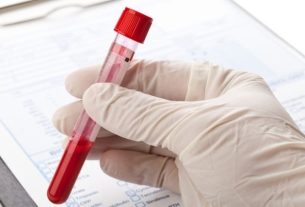The IgG test for toxoplasmosis is a serological test carried out to check whether the person has antibodies against the parasite responsible for Toxoplasmosis, the Toxoplasma gondii (T. gondii), being indicative of past or recent infection. This test is normally requested together with the IgM measurement, as this way it is possible to know if there is a recent infection, and treatment can be started immediately afterwards.
This exam is mainly carried out on pregnant women, because if it is found that the woman has a toxoplasmosis infection, it is possible that treatment will be started immediately to avoid transmission to the baby and the development of gestational complications and/or changes in development. of the baby. Find out more about toxoplasmosis in pregnancy.
Toxoplasmosis is an infectious disease caused by a parasite that can be transmitted through the consumption of food contaminated by parasite cysts or through contact with the feces of infected cats. Learn more about toxoplasmosis.

When the exam is indicated
The IgG toxoplasmosis test is indicated to diagnose toxoplasmosis and can be carried out by anyone who has signs or symptoms of infection by the parasite, such as tiredness, swelling in the body, muscle or joint pain and red spots on the body, for example. It is also indicated when there has been contact with animals that have been diagnosed with toxoplasmosis.
Furthermore, the test for toxoplasmosis is part of prenatal exams and must be carried out by the pregnant woman according to the doctor’s recommendation.
Read too: Prenatal care: what it is, when to start and necessary exams
tuasaude.com/pre-natal
What does reagent IgG mean?
The IgG reagent result for toxoplasmosis means that there are antibodies circulating in the bloodstream against the T. gondii, which is the parasite responsible for the disease, which may have happened due to a recent or old infection. The reference value may vary depending on the laboratory, however, in general, IgG for toxoplasmosis is considered positive or reactive when the IgG level is greater than 3.0 IU/mL. Results between 1.6 and 3.0 IU/mL are considered indeterminate.
It is important to keep in mind that the reagent result for toxoplasmosis IgG does not necessarily indicate that the person is currently infected and, therefore, it is necessary to also measure IgM, which is the immunoglobulin that begins to be produced as soon as there is infection and is therefore considered a marker of recent infection.
Read too: IgG and IgM: differences and what a reactive result means
How to confirm toxoplasmosis
To confirm toxoplasmosis, it is important that, in addition to IgG, IgM is also measured, which is considered positive or reactive when the concentration of this antibody is greater than 0.60 IU/mL, and this value may vary according to the laboratory. Therefore, a person is considered to have toxoplasmosis when:
- Positive or reactive IgG and IgMindicating that the infection occurred weeks or months ago;
- IgM positive and IgG negativeindicating that the infection is quite recent, and there is not enough time for the body to produce memory antibodies, which are IgG.
In addition to the results of the serological test, the doctor must evaluate the signs and symptoms presented by the person and, in the case of a pregnant woman, an ultrasound may also be indicated to check whether there are any changes in fetal development.
Bibliography
- BARRER, Michael R et al. Medical Microbiology: A guide to microbial infections – pathogenesis, immunity, laboratory investigation and control. 19 ed. Elsevier, 2018. 536; 609.
- ZEIBIG, Elizabeth A. Clinical Parasitology. 2.ed. United States of America: Elsevier, 2013. 177-179.
- JOURNAL OF THE BRAZILIAN SOCIETY OF CLINICAL ANALYSIS. Prevalence of seropositivity for toxoplasmosis in pregnant women treated at a laboratory in a municipality on the coast of the state of Paraná. 2016. Available at: <http://www.rbac.org.br/artigos/prevalencia-de-soropositividade-para-toxoplasmose-em-gestantes-atendidas-em-um-laboratorio-de-municipio-do-litoral- from-state-of-parana/>. Accessed on October 11, 2021

Sign up for our newsletter and stay up to date with exclusive news
that can transform your routine!
Warning: Undefined array key "title" in /home/storelat/public_html/wp-content/plugins/link-whisper-premium/templates/frontend/related-posts.php on line 12
Warning: Undefined array key "title_tag" in /home/storelat/public_html/wp-content/plugins/link-whisper-premium/templates/frontend/related-posts.php on line 13



